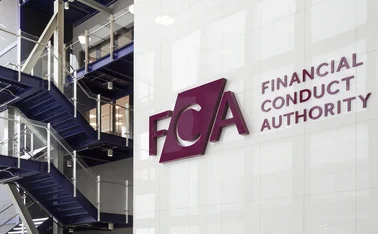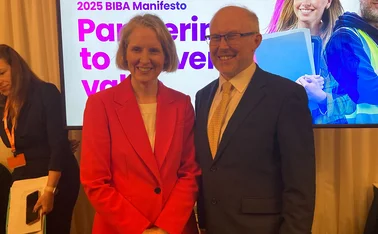
CMC fee caps: Are proposed tariffs too generous or will they drive a choice exodus?

Insurers have argued that proposed fee caps for claims management companies may be too generous, while the claims sector has cautioned measures could reduce choice and service quality.
In January the Financial Conduct Authority published proposals to introduce caps on the fees claims management companies can charge their customers. The measures would see CMC take limited to a 15% to 30% cut, depending on how much redress a consumer is due.
Some claims businesses currently charge fees upwards of 40%.
The regulator estimated a fee cap could save consumers several thousand pounds on individual claims, equating to £9.6m in savings annually.
Initially under the microscope are CMCs dealing with financial products and services claims. There is scope to extend this – the regulator is looking into whether there is a need for fee rules covering other CMC activity, which could include claims for housing disrepair, criminal injury, employment, personal injury and industrial injuries benefit.
The FCA has proposed to separate redress into five bands and assign each band a corresponding fee cap. The lowest band of £1 to £1499 would see a fee cap of 30% and a maximum total fee of £420, while band five would see a redress of £50,000 and higher with a cap of 15% and a total fee of £10,000 (see box).
A tiered response has been hailed as proportionate by insurers. However, there are concerns at the levels at which caps will decrease – and calls for the regulator to re-assess these.
Martin Milliner, claims director at LV, told Post: “Where I do take issue with is the fact that the 20% [fee cap] only kicks in at £25,000 to [£49,000], which would drive a value of over £7,500 to a potential CMC for very little value because most of the time they are introducing you as a customer to somebody else to do the work.”
Milliner described CMCs as “just a middle man”, arguing that this would not be a “fair price for a consumer to pay for many claims they are dealing with – certainly not [within] personal injury”.
He added: “The idea of step in the tariff is right, but the banding in the tariffs is far too generous.
“I would ask the FCA to perhaps look again at the brackets in which it is putting the fees at percentage because that still creates too much money sloshing around for poorer, less customer-focused CMCs to operate in.”
Andrew Thornley, head of public affairs at law firm Carpenters Group, said: “I hope the regulator considers fees at the lower end of the scale.
“In the consultation document, the FCA says that the fee should be relative to the service offered and sometimes high fees can make it difficult for the claimant to be put back in the same position as they were before the loss – something which is a key function of insurance.
“If the decision is to set the cap at the higher end of the scale, CMCs will have the demonstrate that they are providing a quality service that offers good value for the customer at the same time as not materially affecting indemnification; this will no doubt be challenging.”
Service quality
The rationale behind having structured fees is to make the process easier for customers, and to create a more level playing field. Within the claims sector, there are some concerns that lower fees could drive CMCs to invest less in quality of service.
Graham Pulford, CEO of Handl Group, told Post: “It’s a good starting point in terms of looking at where to go next. My logic tells me that we should then look at the suggested fee structures – are they correct? Are they the right ones?
“The biggest worry about the fee caps is effectively what we might do to the industry is reduce its quality of service. If you’re not getting paid enough to provide a quality service, then the consumers detriment will increase on that basis, and that’s a potential worry that we have, any fee caps have to be set at the correct level.”
An 'important role to play'
Matthew Maxwell Scott, Association of Consumer Support Organisations executive director, said of CMCs: “They add consumers choice by competition in the market, and if they are well regulated and well government then they offer something really important.
“Clearly good regulation includes making sure there’s not any sort of excess profiteering going on but then equally a lot of care needs to be taken to make sure that any caps don’t inhibit competition in the market and do mean those properly regulated companies can offer services in the first place. If you set them wrongly, people will exit the market, meaning either [customers] can’t seek redress at all, or they have to go to potentially other places outside the market to get there, and there will always be unscrupulous businesses out there that are happy to step in the jurisdiction.
“Balance has to be struck and care needs to be taken."
Pulford added that a lot of smaller organisations “will struggle to exist” following the introduction of fee caps.
He said: “They will look and say ‘Well, there’s not enough money in it. We are dealing with smaller cases, I’m going to get £420 now whereas before we got £1500, there’s just not enough money’. People will look at that and think, 'while we think it’s a good idea, I can’t monetise that anymore'. Some of those will disappear.
“Customers then will actually be left with less choice because the number of CMCs is reduced."
Any change to fee structure would be likely to trigger a change in market dynamics. Pulford pointed to "bigger, well-governed organisations in that space" as most poised to benefit, as the volume of claims filtering through to them increases.
'Last resort'
According to Rob Cooper, CEO of ME Group, while the objectives of the FCA consultation are “sensible”, price regulation might not be an “appropriate mechanism” to achieve them.
The legal tech claims firm boss said: “[Price regulation] is open to a lot of debate. If you look at the success of price regulation, both in this country and across Europe, there’s some evidence that it’s been successful, but indeed there is also lots of evidence that it significantly distorts markets and prevents consumers having access to services, simply because the cap on price exceeds the costs and a reasonable profit margin that firms can now seek to provide it for.
“In many circumstance, most regulators will look at price capping as a means of regulation of the last resort. As a regulator what you’re saying when you resort to price capping is that ‘we’ve been unable to create a marketplace in which the normal market forces of supply and demand lead to healthy competition and pricing that is fair and reasonable for consumer'.”
If the regulator chooses to impose fee caps, Cooper warned, it has to be “very confident that [it has] identified where the problem moves to next”.
Only users who have a paid subscription or are part of a corporate subscription are able to print or copy content.
To access these options, along with all other subscription benefits, please contact info@postonline.co.uk or view our subscription options here: http://subscriptions.postonline.co.uk/subscribe
You are currently unable to print this content. Please contact info@postonline.co.uk to find out more.
You are currently unable to copy this content. Please contact info@postonline.co.uk to find out more.
Copyright Infopro Digital Limited. All rights reserved.
As outlined in our terms and conditions, https://www.infopro-digital.com/terms-and-conditions/subscriptions/ (point 2.4), printing is limited to a single copy.
If you would like to purchase additional rights please email info@postonline.co.uk
Copyright Infopro Digital Limited. All rights reserved.
You may share this content using our article tools. As outlined in our terms and conditions, https://www.infopro-digital.com/terms-and-conditions/subscriptions/ (clause 2.4), an Authorised User may only make one copy of the materials for their own personal use. You must also comply with the restrictions in clause 2.5.
If you would like to purchase additional rights please email info@postonline.co.uk








